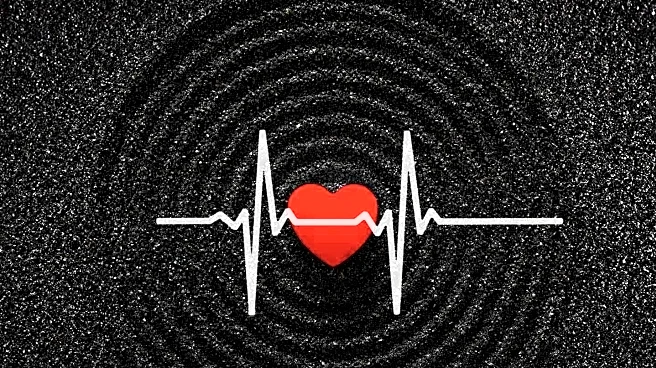What is the story about?
What's Happening?
A recent study published in Nature examined the effects of vasopressin compared to epinephrine during pediatric in-hospital cardiac arrest (IHCA). The research focused on a small cohort of pediatric patients who received intra-arrest epinephrine and at least one additional dose of a vasopressor. The study found no statistically significant difference in the time to return of spontaneous circulation (ROSC) between vasopressin and epinephrine. However, individual responses varied, with 33% of vasopressin patients experiencing a significant increase in diastolic blood pressure (DBP), compared to 14% of those receiving epinephrine. The study suggests that while vasopressin may not universally improve outcomes, it could offer physiological benefits to a subset of patients who do not respond to epinephrine.
Why It's Important?
The findings of this study are significant for pediatric cardiac arrest management, as they highlight the potential role of vasopressin as an alternative treatment for patients who do not respond to standard epinephrine therapy. This could influence clinical guidelines and treatment protocols, potentially improving outcomes for a specific group of pediatric patients. The study also underscores the need for further research to identify which patients might benefit most from vasopressin, as well as the optimal timing and dosing strategies. Understanding these factors could lead to more personalized and effective treatment approaches in critical care settings.
What's Next?
Future research is necessary to explore the physiological response to vasopressin in a larger cohort of pediatric patients, particularly those who fail to meet the goal DBP for their age. Prospective trials could help determine the efficacy of vasopressin in different patient demographics and conditions. Additionally, further investigation into the timing and dosing of vasopressin could provide clearer guidance for its use in clinical practice. These studies could ultimately lead to revised treatment protocols that incorporate vasopressin as a standard option for certain pediatric cardiac arrest cases.
Beyond the Headlines
The study raises important questions about the current use of vasopressin in pediatric cardiac arrest, particularly regarding its administration in patients perceived to have limited survival potential. This highlights ethical considerations in treatment decisions and the need for clear guidelines to ensure equitable care. The research also points to the potential for vasopressin to be used more effectively if administered earlier in the course of treatment, suggesting a shift in current medical practices could be beneficial.
















